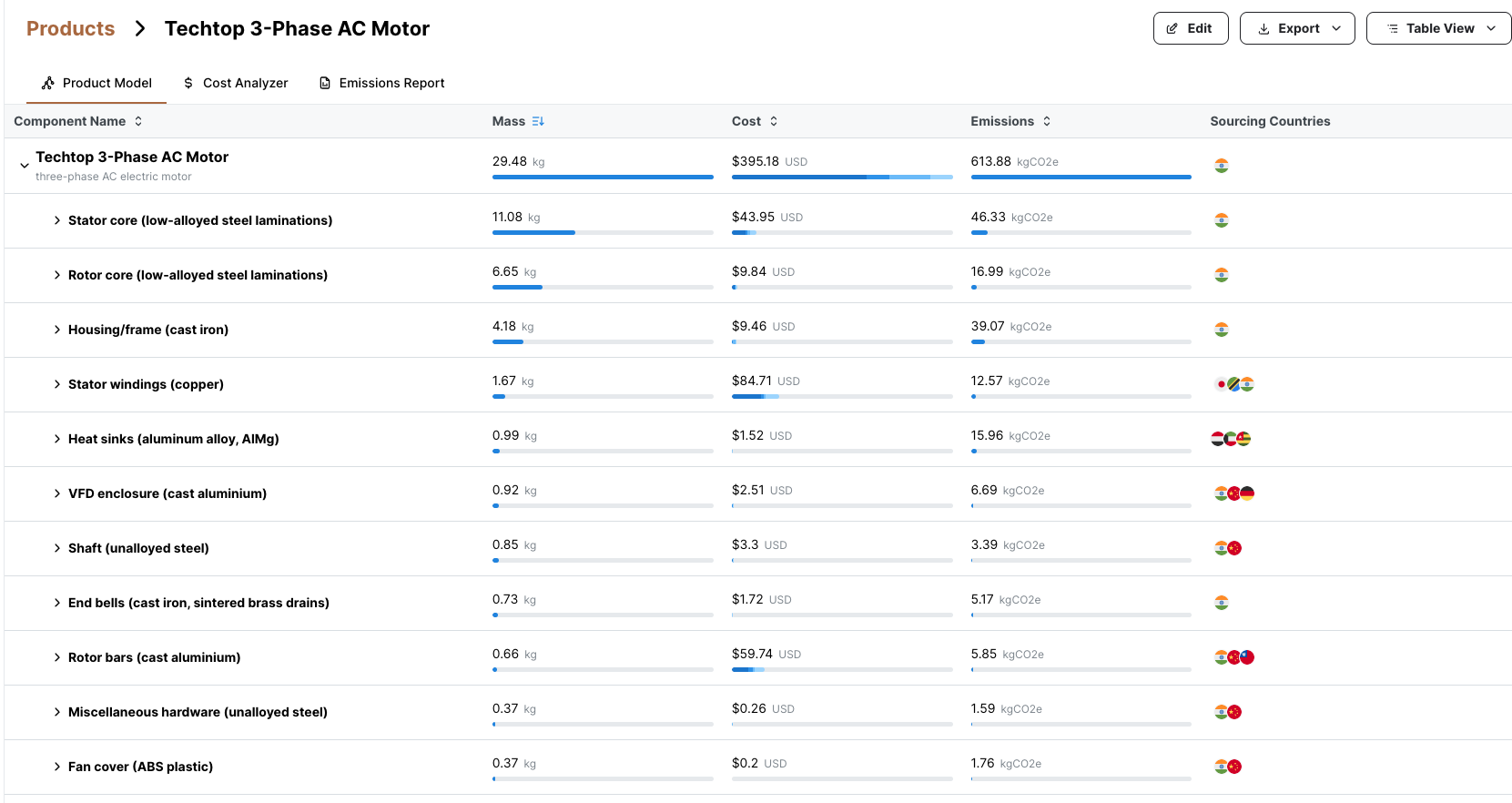
Thank you for registering
Sept 2025
Turn Your Messy BOM Into Actionable Insight with AI
Looking to subscribe to our newsletter? Click here.

It is odd to hear that most companies don't understand their products, it seems like a baseline expectation that they could tell you what goes into them.
While most companies have Bills of Materials (BoM), a list of things going into an assembly, for their goods the reality is most are incomplete, inconsistent, and hard to use. BoMs often live in gated product lifecycle tools, are messy, illegible to humans and missing key parts and attributes like weight, material, or supplier. There’s no standard format, and part names are often ambiguous. This makes deriving decisions around a product and its BoM hard to trust, harder to scale, and nearly impossible to analyze without extensive manual cleanup.
That’s a critical problem. Without complete, structured BOMs, teams are making design, sourcing, and sustainability decisions on partial data. The result? Inflated costs, underreported emissions, overly complicated processes, and supply chain risk; all buried inside a document no one fully understands. You can’t optimize your products if you don’t actually know what’s in them.
At Muir, we’ve built AI-driven BoM agents that transforms raw product data into usable intelligence. Our platform ingests messy BoMs and automatically parses the structure, normalizes formats, infers missing data like mass and material, and flags uncertainties. We don’t just comprehend BoMs; we enrich them with real-world cost, carbon, and supplier data to create actionable product model.
With Muir, companies can finally run automated BOM analysis at scale. Understand true product cost. Identify emissions hotspots. Compare sourcing scenarios. Find duplicate or risky components across products. Our agents turn what used to be a limitation within companies into a strategic advantage.
Read more about some of work and the support from Amazon's compute for climate here: https://ircai.org/ircai-and-aws-announce-23-startups-for-the-2025-compute-for-climate-fellowship/